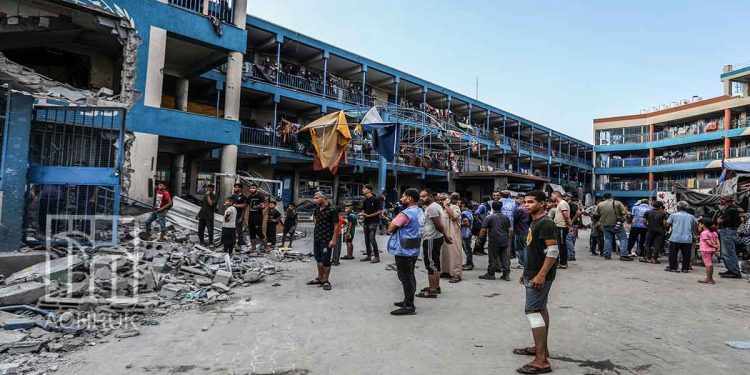More than 90,000 displaced Palestinians are currently sheltering in 115 facilities operated by the United Nations Relief and Works Agency (UNRWA) across the Gaza Strip, as the humanitarian situation continues to deteriorate rapidly. The shelters are overcrowded and critically under-resourced, with severe shortages of food, clean water, and medicine, according to a statement from the agency.
This situation unfolds as Israel maintains a full blockade on Gaza, preventing the entry of humanitarian aid and commercial goods. The siege has led to worsening conditions for civilians—particularly women and children, who make up the majority of those affected—amid an already unprecedented crisis.
According to United Nations estimates, approximately 420,000 Palestinians have been newly displaced since the collapse of the ceasefire agreement on 18 March. The truce, initially brokered on 19 January 2025, broke down following Israel’s unilateral withdrawal, despite the Palestinian side reportedly honouring its commitments, including arrangements related to prisoner exchange.
Since resuming hostilities, Israeli forces have intensified their bombardment of residential areas and civilian infrastructure, leading to the repeated displacement of families who had returned home during the temporary truce.
Since 7 October 2023, the war has resulted in over 168,000 Palestinian casualties, the majority of whom are women and children. Additionally, more than 11,000 people remain missing, either trapped under rubble or detained without access to legal representation or family contact.
Israel faces mounting accusations of committing war crimes and violations of international humanitarian law, particularly in light of its continued targeting of hospitals, shelters, and UN-operated facilities, as well as its denial of essential supplies to Gaza’s population.
The humanitarian toll is compounded by the lack of safe zones and the inaccessibility of emergency assistance. UNRWA has warned that its capacity to respond is being stretched beyond limit, while international aid convoys remain blocked at Gaza’s borders.
This deepening crisis underscores urgent calls from international human rights organisations for a cessation of hostilities, the immediate opening of humanitarian corridors, and the enforcement of accountability mechanisms to protect civilians and uphold international law.


























